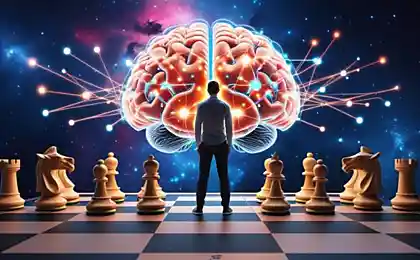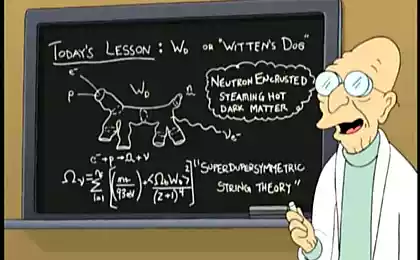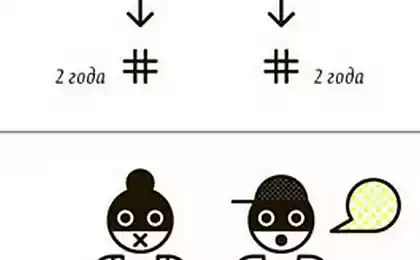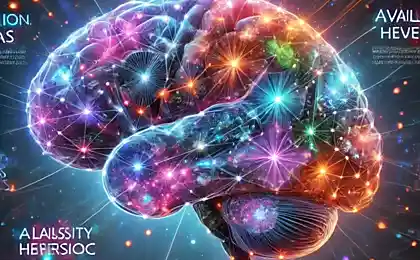1668
Mental traps

This article is a brief synopsis of the book «Andre Kukla: Mental Traps»
Mental trap - the so-called rake, which we are attacking again and again. Certainly every normal person wants this "bad step" in its activities was the last, and was not repeated.
With the "rake" or mental traps can easily cope if they lie to you in all its glory, without any disguise. But this is not always, and often we do not see and do not understand what are our mistakes. The purpose of this article is to familiarize with the most "popular" mental traps that André Kukla described in his book.
Mental traps
1. Perseverance
First of mental traps. The gist of it is that we continue the work which is doomed to failure or not the former gives us pleasure. The most typical example, we have to inspect tedious film only because of the stubbornness and the fact that we have been taught since childhood to bring the follow through. As a result, it is just a waste of your time and spoiled the mood.
2. Amplification
It's a trap, and we get into it when put into the goal more effort than necessary. The so-called endless pursuit of perfection or perfectionism. Here we should also recall the notorious "Pareto principle", the essence of which lies in the fact that 20% of the work for 80% of the results, and vice versa: 80 percent of the work bring 20% of th result.
3. Fixing
When you commit to the goal of our progress is blocked. We can not start a business, yet can not wait to call, resolution, inspiration, etc.
4. Reversion
We lost, the time has gone. But if at this stage we continue to excite the same problem, so we are trapped reversion.
Reversion is a temporary fix contrast. When you commit, we are working furiously working to hasten frozen future. When we tschimsya reversion irreversible change the past. Here you need only put up and take it for granted.
5. Advance
Trap in which we find ourselves starting too early. We recycle when the same result can be achieved with greater ease a little later. A typical example of a training session when a student for a couple of weeks of training, performs all necessary for the curriculum that has been stretched to the entire semester.
6. Resistance to
Resistance - is a disease, "Well a little bit more." Reluctance to change the course of action, under the influence of external circumstances (the doorbell when watching a movie or wake-up call and we did not want to get up, but still have to, because it makes no sense to delay it).
7. Tightening
We definitely decided on some business, but we find it hard to start it. Shelving for later, inventing non-essential matters to postpone the execution of unpleasant duties.
8. Separation
Attention is indivisible in principle. Work means work, rest, then rest. When on vacation, we think about work and when at work thinking about the rest, well we can not fulfill neither the one nor the other.
9. Accelerate
Acceleration - it's a trap, in which we find ourselves when we do something more than you need speed. (Acceleration - a mirror image of tightening). As they say, all perform life is not enough, so you should not be killed in this regard. Infinity minus one - besokonechnost too, so it makes no sense to rush. Acceleration only ingrained habits to hectic.
10. Regulation
When our thought points to the fact that the door is open, we think descriptively. When we decide that it is necessary to close the door, we think prescriptive. Regulation - a trap useless regulations. We fall into the trap of regulation, when prescribing yourself some behavior in a situation where the momentum would be a better conductor.
11. Formulation
Continuous trap of pronunciation of his thoughts about what we think true.
The most obvious damage formulation is that it leads to the separation. Whenever we describe and evaluate an event or some experience before they run out, we do two things at the same time. On the one hand, we admire the sunset, on the other - say or think about it. Separation destroys pleasure. In fact, we can not really enjoy the sunset and at the same time to evaluate it, because doing the assessment, we abstract from the sensual experience. As soon as we say, "Oh, how wonderful, is not it?" Miracle disappears.
Results of
We constantly rely on prescriptions because they do not believe in the ability of the pulse.
The habit of constantly "in control" - and every situation - forces us to work without rest, without giving any benefits. In other words, it leads us into a trap and whose name is stress.
Source Your text to link ...























